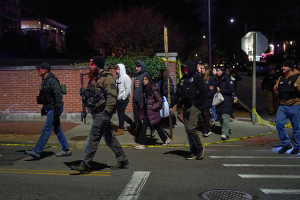Are Neutrinos Faster Than Light? Scientists Re-Run Tests
Scientists have been left dumb-founded at the discovery of sub atomic particles, neutrinos, which can travel faster than the speed of light.
Researchers are once again trying to replicate their findings so that they can submit their data for publication as fact.
Sensing the importance of the experiment's results, Dr. Sergio Bertolucci made it clear that scientists are not going to "fool around."
A group of scientists working on the Opera experiment last month discovered the new findings on neutrinos.
Neutrinos were sent through the ground at Cern in Geneva to the Gran Sasso laboratory in Italy about 600 miles away and surprised everyone when they arrived a fraction of a second before light.
The particles showed up 60 nanoseconds (60 billionth of a second) before, which is slightly faster than the speed of light.
A discovery like this would throw off the whole balance and basis of physics because according to the law of physics nothing in the universe is faster than light.
Many feel there may be a "systematic error" involved that scientist haven't picked up on yet because it would challenge Albert Einstein and James Clerk Maxwell’s theory about the speed of light.
Over 80 scientific papers have been written explaining possible mistakes and errors in the claim, while others see a solution to crack the code.
Dr. Bertolucci told BBC News "In the last few days we have started to send a different time structure of the beam to Gran Sasso. This will allow the Opera to repeat the measurement, removing some of the possible systematics."
Cern fires protons as a long pulse of 10 microseconds, while exchanging through the crust the particles turn into neutrinos after a series interactions.



























